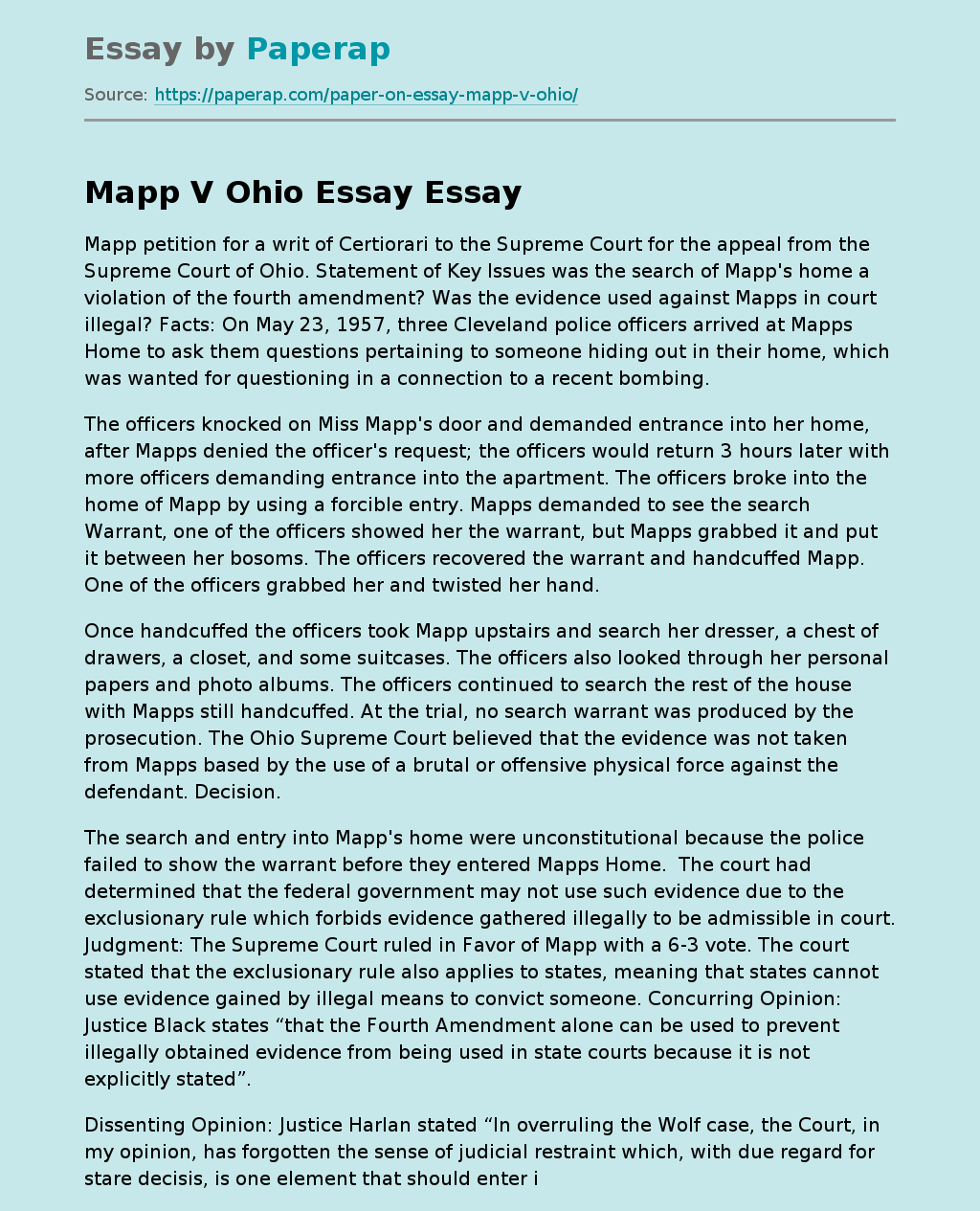Mapp V Ohio Essay
Mapp petition for a writ of Certiorari to the Supreme Court for the appeal from the Supreme Court of Ohio. Statement of Key Issues was the search of Mapp’s home a violation of the fourth amendment? Was the evidence used against Mapps in court illegal? Facts: On May 23, 1957, three Cleveland police officers arrived at Mapps Home to ask them questions pertaining to someone hiding out in their home, which was wanted for questioning in a connection to a recent bombing.
The officers knocked on Miss Mapp’s door and demanded entrance into her home, after Mapps denied the officer’s request; the officers would return 3 hours later with more officers demanding entrance into the apartment. The officers broke into the home of Mapp by using a forcible entry. Mapps demanded to see the search Warrant, one of the officers showed her the warrant, but Mapps grabbed it and put it between her bosoms. The officers recovered the warrant and handcuffed Mapp.
One of the officers grabbed her and twisted her hand.
Once handcuffed the officers took Mapp upstairs and search her dresser, a chest of drawers, a closet, and some suitcases. The officers also looked through her personal papers and photo albums. The officers continued to search the rest of the house with Mapps still handcuffed. At the trial, no search warrant was produced by the prosecution. The Ohio Supreme Court believed that the evidence was not taken from Mapps based by the use of a brutal or offensive physical force against the defendant.
Decision.
The search and entry into Mapp’s home were unconstitutional because the police failed to show the warrant before they entered Mapps Home. The court had determined that the federal government may not use such evidence due to the exclusionary rule which forbids evidence gathered illegally to be admissible in court. Judgment: The Supreme Court ruled in Favor of Mapp with a 6-3 vote. The court stated that the exclusionary rule also applies to states, meaning that states cannot use evidence gained by illegal means to convict someone. Concurring Opinion: Justice Black states “that the Fourth Amendment alone can be used to prevent illegally obtained evidence from being used in state courts because it is not explicitly stated”.
Dissenting Opinion: Justice Harlan stated “In overruling the Wolf case, the Court, in my opinion, has forgotten the sense of judicial restraint which, with due regard for stare decisis, is one element that should enter into deciding whether a past decision of this Court should be overruled. Apart from that, I also believe that the Wolf rule represents sounder Constitutional doctrine than the new rule which now replaces it”. Principle of Law: The exclusionary rules stated that evidence must not be illegal to convict someone in court. Mapp V. Ohio would also replace the Wolf rule.
Mapp V Ohio Essay. (2019, Nov 27). Retrieved from https://paperap.com/paper-on-essay-mapp-v-ohio/

